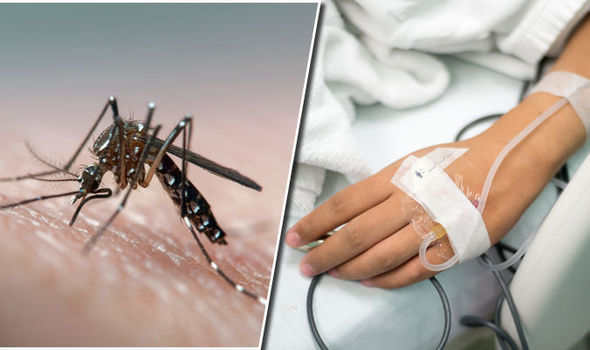Dengue fever is a growing global health concern, especially in tropical and subtropical regions. This mosquito-borne viral illness affects millions annually and, without timely care, can escalate into life-threatening conditions such as dengee hemorrhagic fever or dengee shock syndrome. At Klinik Rakhan Iman, we prioritise creating awareness and providing expert care for dengee fever. This blog will guide you through its causes, symptoms, prevention, and treatment options to keep you informed and safe.
1. What is Dengue Fever?
Dengue fever is caused by the dengee virus, which belongs to the Flavivirus family. The disease is transmitted primarily by the bite of female Aedes aegypti mosquitoes, which thrive in warm and humid climates. This illness has become a public health concern in urban and semi-urban areas, with periodic outbreaks resulting in hospitalizations and, in severe cases, fatalities.
Globally, over 390 million infections occur annually, with Southeast Asia, South America, and Africa being hotspots. Klinik Rakhan Iman encourages early diagnosis and preventive measures to combat this growing threat.
2. Causes of Dengue Fever
Denguee fever’s transmission cycle revolves around the Aedes mosquito. Here’s how the virus spreads:
- Mosquito Vector: When an infected Aedes mosquito bites a healthy individual, it transmits the virus.
- Secondary Transmission: Once a mosquito feeds on a person already infected with the dengue virus, it becomes a carrier, spreading the disease further.
- Environmental and Human Factors:
- Stagnant water in pots, tires, or drains provides breeding grounds for mosquitoes.
- Urbanization and overcrowded living conditions increase exposure to infected mosquitoes.
By addressing these causes, Klinik Rakhan Iman emphasizes the importance of community-level mosquito control programs.
3. Symptoms of Dengue Fever
Denguee fever manifests differently depending on the severity of the infection. Symptoms typically appear 4–10 days after being bitten by an infected mosquito.
- Mild Symptoms:
- High fever (up to 104°F or 40°C).
- Severe headache, especially behind the eyes.
- Joint, muscle, and bone pain.
- Nausea, vomiting, and mild rashes.
- Severe Symptoms:
- Persistent vomiting.
- Severe abdominal pain.
- Bleeding from the nose or gums.
- Blood in vomit or stool.
- Cold or clammy skin, signaling dengue shock syndrome.
If you experience these symptoms, visit Klinik Rakhan Iman immediately for proper diagnosis and care.
4. How is Dengue Diagnosed?
Accurate and timely diagnosis is crucial for effective treatment. At Klinik Rakhan Iman, we use advanced diagnostic tools to confirm dengee fever.
- Clinical Assessment: Doctors assess symptoms and recent travel history to areas with active dengee outbreaks.
- Laboratory Tests:
- Complete blood count (CBC) to monitor platelet levels.
- Dengue NS1 antigen test or dengue antibody tests to detect the virus or immune response.
Early detection can prevent severe complications and reduce the risk of hospitalization.
5. Prevention of Dengue Fever
The adage “prevention is better than cure” holds especially true for denguee fever. Here are effective ways to minimize the risk:
Personal Protection:
- Apply mosquito repellents containing DEET or picaridin.
- Wear light-colored, long-sleeved clothing to reduce exposed skin.
- Sleep under mosquito nets, especially during the day when Aedes mosquitoes are most active.
Environmental Measures:
- Regularly empty water from containers like buckets and flower pots.
- Use larvicides in stagnant water that cannot be eliminated.
- Support local authorities in fogging campaigns to reduce mosquito populations.
At Klinik Rakhan Iman, we advocate for community-level awareness programs to educate families about these preventive steps.
6. Treatment for Dengue Fever
Dengee fever does not have a specific antiviral cure. Treatment focuses on symptom management and supportive care.
Home Care for Mild Cases:
- Rest is essential to allow the body to recover.
- Stay hydrated by drinking water, oral rehydration salts, or electrolyte solutions.
- Use acetaminophen for fever and pain relief, avoiding NSAIDs like ibuprofen or aspirin, which can increase bleeding risks.
Hospitalisation for Severe Cases:
- Intravenous fluids to combat dehydration.
- Close monitoring of platelet count and vital signs.
- Blood transfusions may be required in cases of severe bleeding.
Our expert team at Klinik Rakhan Iman provides round-the-clock care for dengue patients, ensuring the best outcomes.
8. FAQs About Dengue Fever
Can dengue fever be fatal?
Yes, severe cases like dengee hemorrhagic fever or dengee shock syndrome can be life-threatening. Early diagnosis and treatment are critical.
Is there a vaccine for dengue fever?
Vaccines such as Dengvaxia are available in some regions, but they are not universally accessible and may not be suitable for everyone. Consult a healthcare provider at Klinik Rakhan Iman for advice.
Can dengue fever reoccur?
Yes, as there are four strains of the dengee virus, being infected by one strain does not provide immunity to the others.
How long does recovery take?
Mild cases typically resolve in 1–2 weeks, while severe cases may take longer with proper medical care.
Conclusion
Dengee fever remains a significant health concern, but its impact can be minimized through awareness, prevention, and timely medical intervention. By adopting preventive measures like reducing mosquito breeding sites and using protective gear, you can protect yourself and your loved ones.
At Klinik Rakhan Iman, we are dedicated to providing comprehensive care for dengee fever patients. From diagnosis to recovery, our expert team is here to guide you every step of the way.

